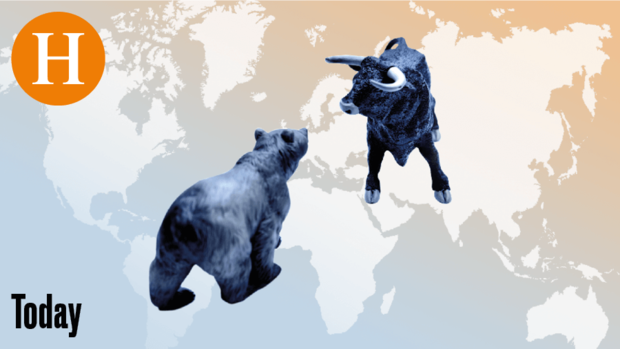Dusseldorf India is becoming more and more interesting for many investors worldwide. Measured by nominal GDP, India is the fifth largest economy in the world and, alongside China, is considered to be the emerging market with the greatest potential.
Handelsblatt foreign correspondent Matthias Peer is convinced: Thanks to the growing middle class, India could overtake China as the most populous country in a few years.
This would finally make India a serious economic competitor for China. “Until now, the country has been more protectionist, but it now wants to open up further and start free trade talks with the EU and England,” explains Peer in the podcast Handelsblatt Today.
Prime Minister Narendra Modi also wants to drive growth in the economy. Indian Prime Minister Narendra Modi launched some very large infrastructure projects and digitization initiatives, such as “Digital India”. However, some of the results were manageable. “Modi is a gifted rhetorician and a good marketer,” says Peer.
Top jobs of the day
Find the best jobs now and
be notified by email.
However, India has been established in the tech industry for many years. The country is considered a popular tech outsourcer for many large world market leaders and is increasingly becoming a global trading center. The Apple supplier Foxconn, for example, wants to double the number of employees in order to be able to produce more. The Japanese car manufacturer Toyota also wants to invest up to 600 billion euros in India in the future to expand the production of electric cars.
No clear positioning for or against Russia
India is ambivalent about its geopolitical role in the Ukraine war. On the one hand, the country maintains very good relations with the EU and the USA, but on the other hand it is heavily dependent on Russia in the arms market. “India is doing everything possible not to be taken over by any side and, like every country, is also pursuing its own interests. However, it has no national interest in allying with or opposing Russia.”
Also: In the past two years, China has changed from a beacon of hope to the problem child of the economy. Investors are looking more and more critically at the People’s Republic. The skepticism started with the outbreak of the Covid-19 pandemic, is now intensified by the enormous tech regulations and the problems in the real estate sector, triggered by the impending bankruptcy of the real estate giant Evergrande. China’s pro-Russian stance in the war of aggression against Ukraine reached another peak of criticism. In an interview, Handelsblatt foreign boss Nicole Bastian explains what the consequences are for Germany.
We have an exclusive subscription offer for you as a Handelsblatt Today listener. Interested? Then take a look.
If you have any comments, questions, criticism or praise for this episode, please email us at: [email protected]
